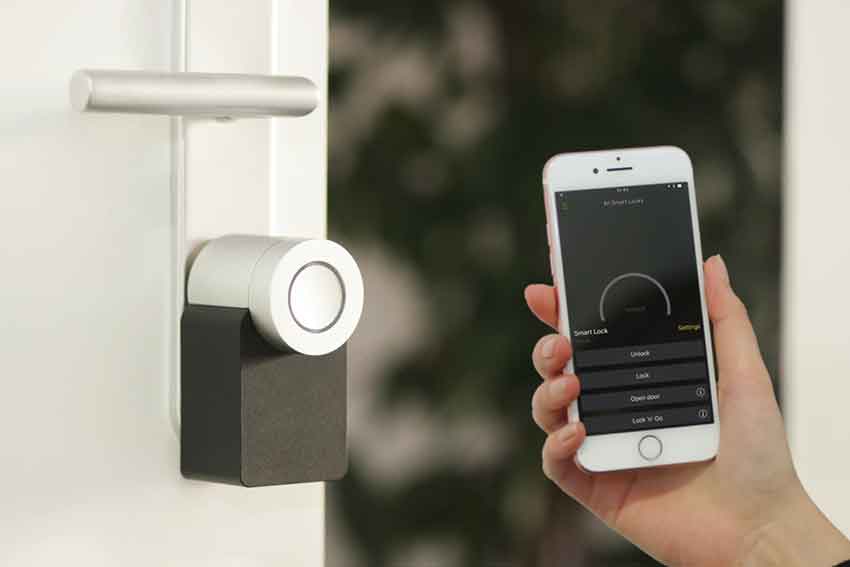Show:
Why The Smart Home Is Facilitating Smart Communities
In today’s world, technological advancements are increasing at a fast pace. The word smart home didn’t exist in our vocabulary a few years ago, but now it’s all the rage. More and more people are following the trend of getting a smart home, which is both efficient and economical in the long run. The increasing number of smart homes is not only beneficial for those individuals who own them, but also for cities at large. The existence of smart homes is now slowly facilitating smart communities. But what is a smart home? And what is a smart community?

What is a smart home?
Simply put, a smart home is a house that makes use of internet-connected devices. These include both appliances and systems that manage your house. For example, a smart TV connects to the internet, allowing you to download different applications and even surf the net on your television!
Smart applications include electricity and heating systems. These systems are connected to the internet, and you can easily control them with your smartphone or a networked device. By making use of the internet, you can find out optimal settings to suit your desired goal, such as saving energy.
Smart homes are also often referred to as home automation. With the newer devices coming to the market, you can control different appliances and systems with just your voice. Features such as these allow homeowners to live in comfort and convenience. Smart homes also optimize the efficient use of energy.

What are smart communities?
One of the biggest advantages of smart homes is their greater efficiency. But what is a smart community? Unlike smart homes, the main advantage, or goal, of smart communities is to improve the standard of living of people. A smart community aims to use the same technology incorporated into smart homes to push inclusive prosperity, solve social problems, and improve the quality of life for individuals. By doing so, these communities also contribute to reaching the UN’s sustainable development goals.
These communities also aim to be cost-effective. All communities face a range of issues, such as budget problems and population growth. In the face of such problems, smart communities aim to find solutions that stress on economic development and public safety. Citizens usually do this through avenues such as an intelligent community forum.

Why The Smart Home Is Facilitating Smart Communities
Now that you know what a smart home is and what a smart community is let’s talk about why the smart home is facilitating smart communities. When thinking about this, it’s important to remember that the household is not just a private space. Households have connections to the outside world that contribute to the advancement of many things in society as a whole, such as politics and employment.
Smart homes, in particular, are interconnected. Individuals living in smart homes usually sync up their multiple devices and systems, which leads to greater efficiency in the running of the household. By being interconnected, a smart home also enhances the connections a household has to society – and in this way, facilitates smart communications.
So, what are these connections, and how is the smart home enhancing them? Employment and politics, as we mentioned before, are just two broad categories under which these connections fall. But these connections can also include community services, energy management, waste management, and civic involvement.
A smart home is essentially the entry point for individuals to begin engaging in the development of a smart community. Such a community is not just a group of smart homes, as we stated above. This kind of community aims to enhance the standard of living of all its citizens, and building such a community involves the efforts of these very citizens.
Citizens of a smart community are an example of a discourse community, a group of people that share the same goals. These are usually public services that are beneficial to the community. A discourse community essay is a common topic for many students. For those interested in discourse communities, smart communities are a great example.

By living in a smart home, individuals become acquainted with smart technologies. They develop a greater understanding of how these technologies work, which allows them to build a smart community. For example, by knowing how to manage smart home systems through smartphone applications, a person may be able to understand smart city initiatives such as a smart parking system operated through phone apps better. If individuals were not acquainted with these technologies, it would be much more difficult for them to build a smart community.
Another way smart homes are facilitating smart communities is through the power of influence and persuasion. People living in the locality of a smart home are likely to see the benefits it can bring. For example, people may see that a smart home heating system may significantly drive down bills, while effectively heating a house. The local government can also roll out smart community initiatives such as smart street lighting. They may thus be influenced to adopt smart home technologies themselves. If more people adopt smart home technologies, the likelihood of building a smart community increases, as we just stated.
Therefore, it’s evident that smart homes are facilitating smart communities. These communities aim to advance both economically and socially, but the starting point of residents in a community like this is the adoption of a smart home. Hence, a good smart city strategy to encourage the growth of a smart community is through a bottom-up approach.
Summing Up
Smart home systems are growing more and more popular because they are increasing both the comfort and quality of life. Through simple applications on your phone, or remote control, you can control how different appliances and systems in your household work. Not only that, but you can also get advice and plans on how to run your household in a way that increases efficiency while decreasing cost.
By getting people accustomed to such technologies and by embedding smart city technologies into their daily lives, smart homes are facilitating the ease with which people are readily accepting these changes. This means they are facilitating the growth of smart communities in many different areas and contributing to the increase in sustainable smart cities development.
Both smart homes and smart communities, on their own, make the lives of their inhabitants even better. But the existence of such communities in the absence of smart homes is challenging. Smart city planning aims to encourage the adoption of smart homes; we can also see a rise in the number of smart communities.

 Return to Previous Page
Return to Previous Page








